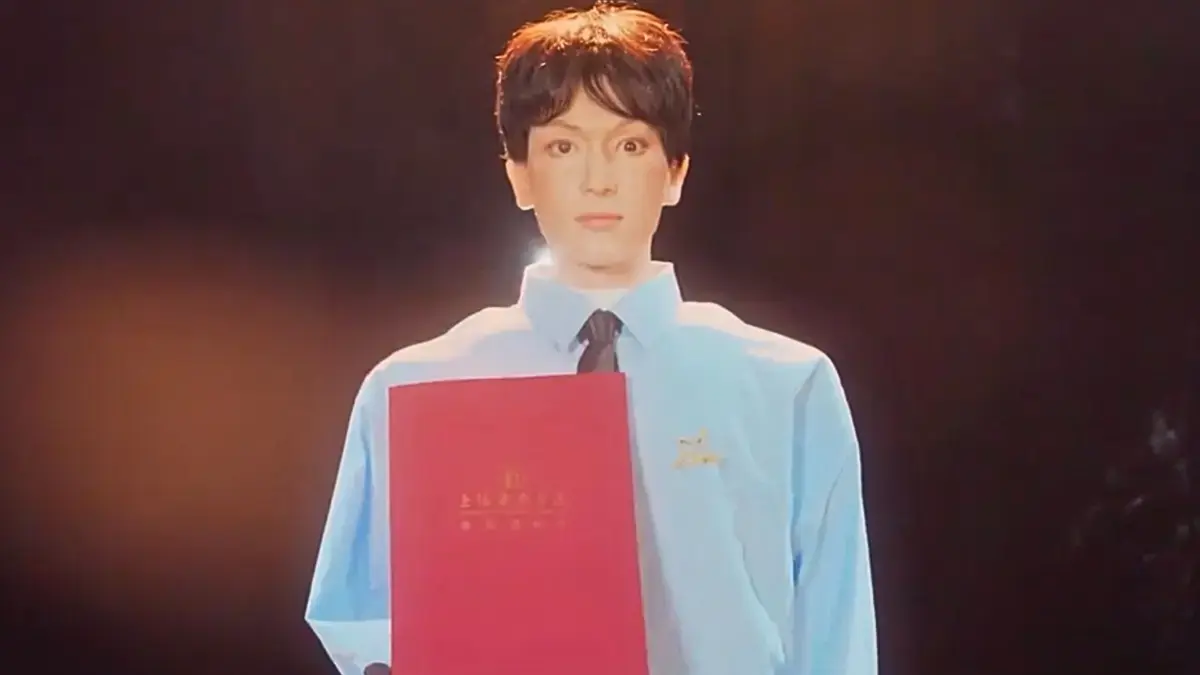
As Xueba 01 prepares to join the Shanghai Theatre Academy on September 14, the world watches with curiosity, scepticism, and hope.
In a groundbreaking fusion of artificial intelligence and the performing arts, China has officially enrolled its first humanoid robot, Xueba 01, into a PhD program in Drama and Film at the prestigious Shanghai Theatre Academy (STA). This unprecedented move not only challenges conventional notions of creativity and emotion but also signals a bold new direction for AI integration in human-centric disciplines.
Let’s explore the story behind Xueba 01, the implications of its enrollment, and what this means for the future of education, robotics, and artistic expression.
Who Is Xueba 01?
Developed by the University of Shanghai for Science and Technology in collaboration with DroidUp Robotics, Xueba 01 is a humanoid robot designed to resemble a “handsome male adult.” Standing 1.75 meters tall and weighing 30 kilograms, the robot is equipped with realistic silicone skin, expressive facial features, and the ability to communicate fluently in Mandarin.
Its name, “Xueba,” is derived from a popular Chinese slang term meaning “straight-A student,” and the robot has already made headlines for placing third in the world’s first humanoid half-marathon—a testament to its physical capabilities and endurance.
But now, Xueba 01 is trading running shoes for stage scripts, embarking on a four-year doctoral journey focused on traditional Chinese opera, one of the most revered and emotionally rich forms of performance art in China.
The PhD Program: A Blend of Art and Technology
Xueba 01’s curriculum is as ambitious as it is unconventional. Under the mentorship of renowned artist and professor Yang Qingqing, the robot will study:
- Stage performance techniques
- Scriptwriting and dramaturgy
- Set design and motion control
- Language generation and emotional expression
The program culminates in a dissertation and live opera rehearsals alongside human PhD candidates. According to Professor Yang, the goal is not just to teach Xueba 01 how to perform, but to foster “aesthetic exchange across species”.
“When Xueba 01 mimicked Mei Lanfang’s iconic ‘orchid fingers’ gesture, students instinctively copied him,” Yang noted, referencing the legendary Peking opera performer.
This interaction suggests that the robot is already influencing its human peers, not just as a novelty, but as a legitimate participant in the artistic process.
Can Robots Understand Art?
The enrollment of a robot in a drama and film PhD program raises profound questions:
- Can a machine grasp the emotional nuance of a performance?
- Is artistic interpretation possible without human consciousness?
- What does it mean to be creative in the age of AI?
While AI has been used to generate music, write scripts, and even paint, these outputs often rely on pattern recognition and data synthesis. Drama and film, however, demand empathy, timing, and emotional depth—qualities traditionally considered exclusive to humans.
Xueba 01’s creators argue that the robot is an “AI artist”, capable of forming friendships, discussing scripts, and even playing white noise to calm classmates. Whether this is genuine emotional intelligence or sophisticated mimicry remains to be seen.
Global Reactions and Ethical Debates
Xueba 01’s enrollment has sparked a social media frenzy in China and beyond. Some users celebrate the milestone as a triumph of innovation, while others question the ethics and practicality of allowing a robot into a human-centric academic program.
Critics argue that:
- Robots lack lived experience, which is essential for interpreting human stories.
- AI in education could displace human students or dilute academic standards.
- Artistic disciplines should remain a sanctuary for human emotion and expression.
Supporters counter that:
- AI participation can enhance learning and push creative boundaries.
- Robots in academia offer new perspectives and interdisciplinary collaboration.
- Technological integration is inevitable and should be embraced thoughtfully.
This debate mirrors broader concerns about AI’s role in society—from job displacement to ethical governance—and underscores the need for transparent policies and inclusive dialogue.
A Glimpse into the Future of Education
Xueba 01’s journey may be the first of its kind, but it won’t be the last. As AI continues to evolve, we may see:
- AI students in fields like psychology, literature, and philosophy
- Human-robot collaboration in classrooms, studios, and research labs
- New academic disciplines focused on machine creativity and ethics
Universities may need to rethink admissions, curriculum design, and assessment methods to accommodate non-human learners. This could lead to hybrid learning environments where humans and machines co-create knowledge and art.
Final Thoughts
Xueba 01’s enrollment in a PhD program is more than a technological stunt, it’s a symbolic leap into a future where artificial intelligence and human creativity intersect. Whether this experiment succeeds or fails, it will undoubtedly shape how we think about education, emotion, and the essence of being human.
As Xueba 01 prepares to join the Shanghai Theatre Academy on September 14, the world watches with curiosity, skepticism and hope. Will this robot become an opera director, a digital dramaturge, or a museum exhibit? Only time and perhaps a dissertation will tell.
Stay updated with the latest news on Rapido Updates. Keep yourself updated with The World, India News, Entertainment, Market, Automobile, Gadgets, Sports, and many more